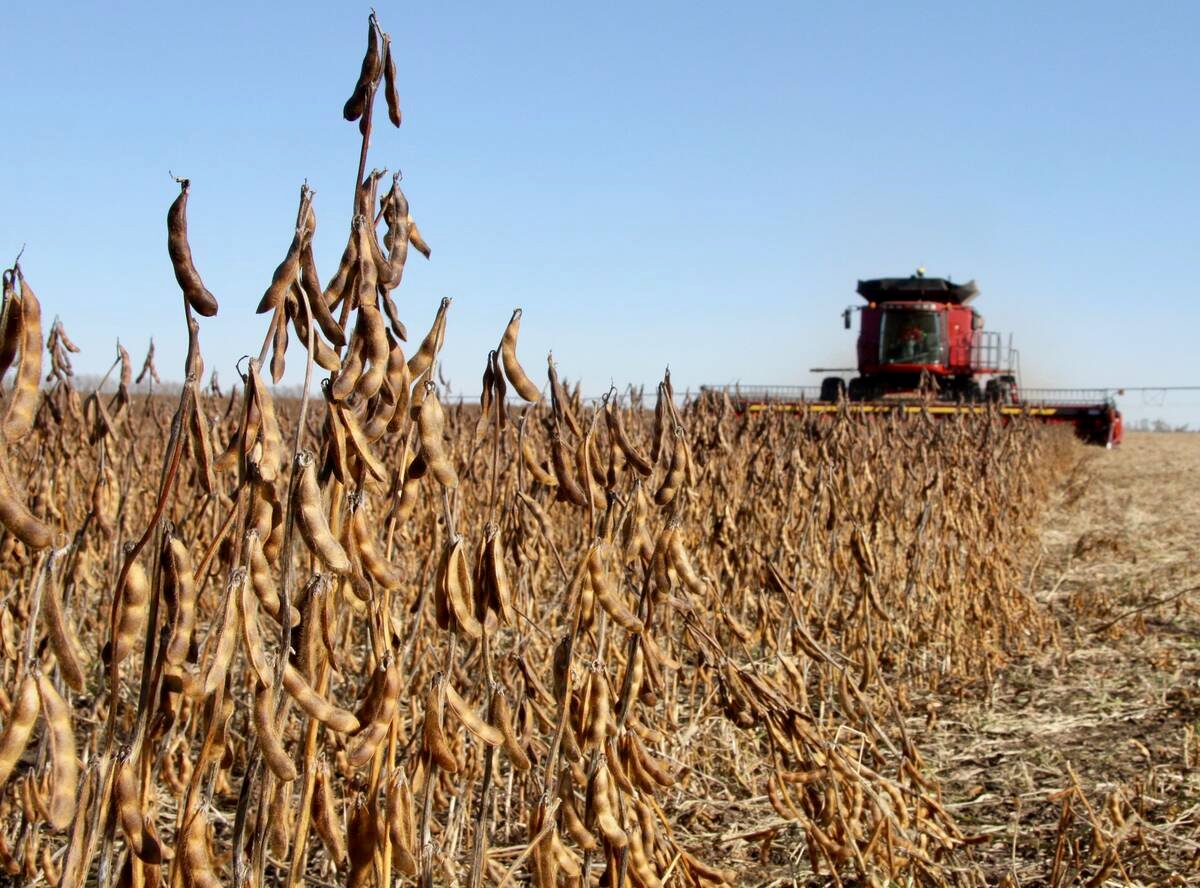Dryness has gripped a huge swath of the Middle East but whether that will result in increased sales of Canadian crops to the region remains to be seen.
Not only could the weather change in time to save the region’s winter wheat crops, but also nations like Iraq have tough specifications for grain imports that this year’s motley crop on the Prairies might not be able to make.
“We’re not going to be selling to Iraq on as regular a basis as we had in past years when we had better supplies, just because it will be tough for us to meet their specs,” said Bruce Burnett, the Canadian Wheat Board’s manager of market analysis and crop surveillance.
Read Also

U.S. soybean crop was not all roses this year
The USDA is forecasting record U.S. soybean yields but for some growers it was a disastrous year due to excess moisture.
Drought has hit winter wheat growing regions of Turkey, Syria, Iraq and Iran during the crucial planting period but it will be months before the crops reveal whether they will be able to thrive in the spring.
Iran and Iraq are huge markets for prairie wheat some years and other years they buy virtually nothing.
Iraq is a fairly regular wheat importer, bringing in more than three million tonnes from all sources in each year since 2007-08, according to United States Department of Agriculture figures.
Iran’s imports are more varied. It bought only 200,000 tonnes in 2007- 08, but imported 6.8 million tonnes from all sources in 2008-09 and five million the following year.
In 2009, Iraq was Canada’s second largest Middle Eastern buyer of Canadian agricultural products, with $436 million in imports, of which most was wheat.
Iran was also a major market in 2009, with $292 million in agricultural imports from Canada, including $218 million in wheat, $62 million in soybeans and $3.8 million in lentils.
But both markets are price-sensitive and quality conscious.
Iraq’s government-set standards about moisture, protein and quality are exacting and not a good match for this year’s prairie crop.
“That’s one reason these guys come in and out (of the list of buyers of Western Canadian grain),” said Burnett of the standards.
Regardless of whether Iran or Iraq buy directly from Canada, the fate of the winter wheat crop there could have a significant market impact. Harvest problems in the former Soviet Union, Canada and Australia tightened the supply of quality wheat and any increased buying by Iran or Iraq would support prices.
Wheat in the region is now in winter dormancy and the crucial time for setting the crop’s potential is months away. So the Middle Eastern drought might not become big market news for a few months.
“If they do develop some difficulties with this year’s crop, maybe at the tail end of the year, their demand will pick up, especially in Iran,” Burnett said.
That could be good news for prairie farmers who get a good crop this coming summer.
“For next year, if we can return to a better grade pattern, the two areas might present some marketing opportunities,” said Burnett.















